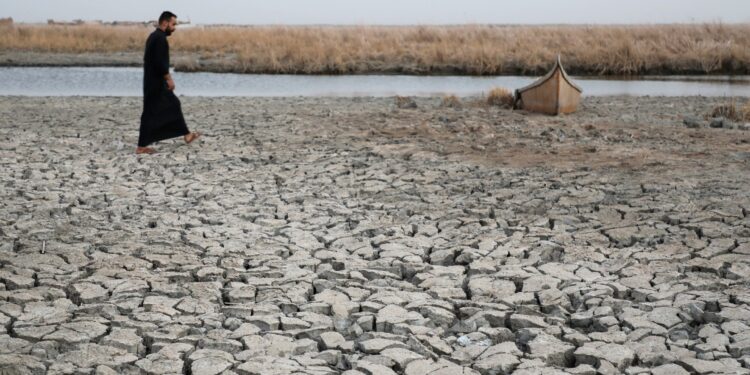A company specialized in agricultural technology and facing climate change has launched a experimental program for Parameter Insurance in Iraq, amid the intensification of the effects of climate change, which is the biggest threat facing Baghdad, according to the United Nations.
The company “Wimder Ricc Management Service” said the program that it launched in cooperation with the World Food Program is the first of its kind in Iraq.
The program aims to protect farmers with small holders as well as those with micro -projects from the risk associated with climate change, which may destroy full crops, according to the company.
The program projects will be implemented in 4 districts, which are Hamdania, Mosul and Talkif (Nineveh Governorate) and Karbala. The program includes securing 400 farms from small holders against drought, and providing 400 micro -agricultural projects against heat waves.
“The initiative is aimed at providing financial relief” quickly and transparently “, to counter the losses caused by harsh climatic phenomena, including heat and droughts.
Disaster confrontation
Parametic insurance is a tool for compensating weak societies by facing natural disasters associated with climate change, as in contrast to traditional insurance does not depend on lengthy processes, but rather on pre -specific indicators such as the amount of rain, wind speed or temperatures to determine the range of losses and pay compensation.
This type of insurance has become an important tool to counter the risks caused by natural disasters – including drought – especially in the agricultural and rural areas that depend heavily on water resources.
Parameter insurance provides quick protection for farmers who depend on rain to irrigate their crops, and helps them avoid bankruptcy or abandon their lands due to the losses caused by drought, and is also a safety source for investors in the agricultural sector.
https://www.youtube.com/watch?v=dbn-xx2jbha
The most affected
Iraq is one of the most vulnerable countries to the damage of climate change, and it is often damaged from drought, heat waves and rains, which will harm agricultural production and farmers’ income.
According to the United Nations, Iraq is among the five countries most affected by climate change due to the low rain level of multiple seasons, as well as continuing to use traditional irrigation means.
In 2021, Iraq witnessed the second most drought in 40 years due to the record decrease in rain.
Over the past 40 years, water flows have decreased from the Euphrates and Tigris rivers, which provide up to 98% of surface water in Iraq, by 30-40%.
Drought threatens the historical marshes area in the south, which is one of the wonders of natural heritage, with the lack of fall and the escalation of temperatures in Iraq.
The low level of river water also leads to the rush of sea water inside the southern lands and the threat of salinity for agriculture, which threatens to live in full societies based on agriculture, according to the United Nations.
The Iraqi government is working with international organizations such as the United Nations and the World Bank to finance adaptation projects with climate change, and has launched a national plan to adapt to climate change focusing on water management, combating desertification and improving infrastructure that has been exhausted by years of war.



